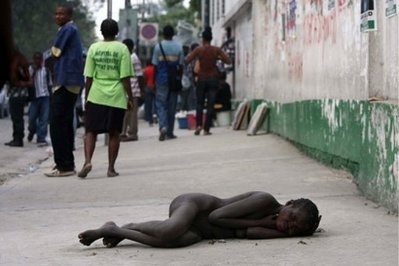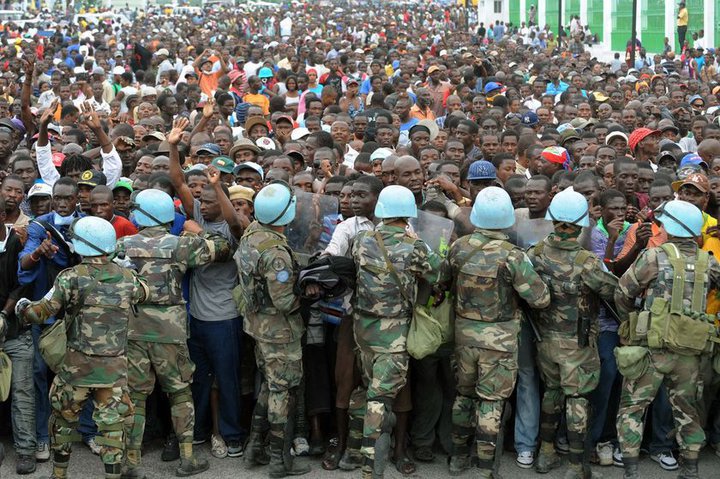
| Want to send this page or a link to a friend? Click on mail at the top of this window. |
| Posted November 18, 2010 |
| Anti-cholera protest turns violent in Haiti earthquake-nearly eviscerated capital |
| By Jonathan M. Katz; |
| Associated Press Writer |
 |
| Woman suffering lies on pavement where A woman suffering from cholera lies on the pavement near the General Hospital where people are being treated, November 16, 2010 in Port-au-Prince. (AFP/Hector Retamal) |
 |
| An anti-cholera protest, drunk dictator Rene Preval protest in Cap-Haitien this week. |
| Wehaitians.com, the scholarly journal of democracy and human rights |
| More from wehaitians.com |